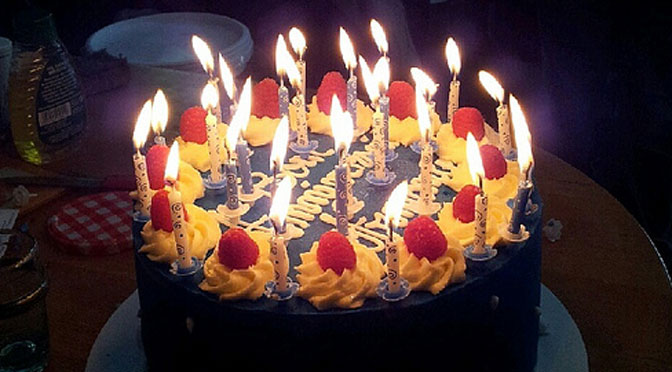In the past 30 years, the life expectancy of people with Down syndrome has more than doubled. Today, people with Down syndrome live to an average of 60 years old. They lead fulfilling lives, work, contribute to society, and build strong relationships. Despite this, doctors often still give mothers a bleak outlook, pressuring those receiving a prenatal Down syndrome diagnosis to get abortions, and give parents outdated, inaccurate medical information — saying that their children will never walk or talk, go to school, hold jobs, or make friends. Some people get lucky, and get doctors that deliver the diagnosis in a positive way with accurate, up-to-date information, but unfortunately, these lucky people remain the minority.
The good news is, people with Down syndrome are constantly proving these doctors wrong.
When Arthur May was born, his doctors told his parents to put him in a home, predicting that he wouldn’t live past five. Last week, he celebrated his 70th birthday, making him the oldest man with Down syndrome in Taranaki, New Zealand, and one of the oldest people with Down syndrome in the world. The oldest living person with Down syndrome is 76.
Instead of institutionalizing their son, his family brought him home, and he exceeded expectations. Around 35 years ago, he went to live with the Shanley family, who treated him like another member of their family. Josh Shanley shared his bedroom with May, and said that having May in their lives helped he and his brothers to accept people who are different. According to Stanley, May is affectionate, eager to help, and loved trying new things. “He used to clean up the shed and he would always make everyone cups of tea,” Stanley said. “He’s just a normal kiwi bloke really, he loves rugby.” And while people often praise the Stanley family for taking May in, they don’t think what they’ve done is all that exceptional. “We always say we’ve got more out of it than what he has,” he said.
May, who now lives in a retirement home, is a two-time international gold medalist in the Special Olympics. He celebrated his 70th birthday with a large group of family and friends, with chocolate cake and lots of affection. Shanley said that his birthday tradition in the past has been to perform a haka, a traditional war dance performed by the Maori people of New Zealand, but he has become hard of hearing and so was unable to do so at this weekend’s party. But it was still a celebration of a life that has clearly been very well-lived.
It’s truly a shame that people with Down syndrome are so often given such low expectations. As medicine advances, there is no telling what a person with Down syndrome can accomplish. All they need — all anyone needs, really — is the love and support of the people around them. With that, they can break any boundary put before them.







